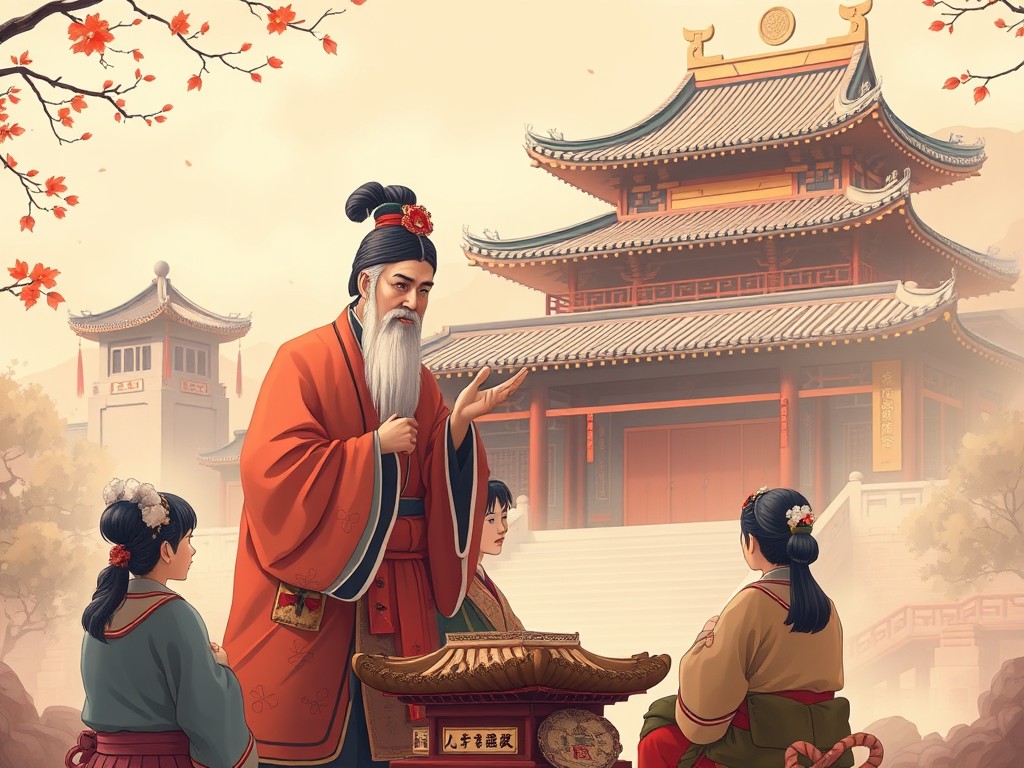A Symbiotic Bond: Exploring the Responsibilities of Rulers and Subjects
Ruler and Subject: A Core Relationship in Confucianism
In Confucianism, the relationship between ruler and subject is one of the five fundamental relationships that define social harmony and order. This particular dynamic emphasizes mutual responsibilities and ethical governance. Here’s a deeper look at this relationship:
Key Principles
- Moral Leadership:
- The ruler is expected to embody moral integrity and virtue. A good ruler leads by example, demonstrating qualities like benevolence (ren) and righteousness (yi).
- Responsibility of the Ruler:
- The ruler has a duty to care for the well-being of the subjects, ensuring their safety, happiness, and prosperity. This is often referred to as the “Mandate of Heaven,” which states that a ruler’s authority is justified by their moral character and ability to govern justly.
- Loyalty of the Subjects:
- In return, subjects are expected to show loyalty and obedience to the ruler. This loyalty is rooted in respect for the ruler’s authority, provided that the ruler acts justly and ethically.
- Social Harmony:
- This relationship is crucial for maintaining social harmony. When rulers act justly, subjects are more likely to support and respect them, leading to a stable and harmonious society.
- Consequences of Poor Governance:
- If a ruler fails to uphold their moral responsibilities, Confucianism teaches that subjects have the right to withdraw their loyalty. This idea has historically influenced the legitimacy of rulers in Chinese society.
Featured Headlines:
-
10 Facts about the Rift Valley
Spread the loveExploring the Wonders of the Great Rift Valley: A Geological and Cultural Marvel Nestled in the heart of East Africa, stretching from the Middle East to Mozambique, the Great Rift Valley is one of the most awe-inspiring natural wonders on Earth. Spanning over 6,000 kilometers, this massive geological formation is a testament to…
-
Equity Bank’s Major Shareholders: Ownership Structure and Key Insights,
Spread the loveKey Points Overview Equity Bank, a leading African financial institution, has a diverse shareholder base that reflects both institutional and retail investment. Here’s a breakdown of its major shareholders based on available data from March 2023, with a note that updates may have occurred since then. Major Shareholders The largest shareholder is Arise…
-
Top 10 Small Business Ideas to Start in Kenya for 2025/2026
Spread the loveTurning Kenya’s Economic Challenges into Opportunities: Top SME Ideas for 2024 Kenya’s economy faces significant hurdles—high unemployment, inflation, mounting debt, and a weakening shilling. Yet, within these challenges lie golden opportunities for savvy entrepreneurs. Instead of despair, smart Kenyans are launching low-cost, high-demand businesses that thrive even in tough times. The Country is in the grip of…
Historical Context
Throughout Chinese history, the relationship between ruler and subject has been pivotal in shaping political and social structures. Dynasties that emphasized Confucian ideals often promoted meritocracy and moral governance, while those that strayed from these principles faced challenges to their authority.
Contemporary Relevance
In modern discussions about governance, the ruler-subject relationship continues to be relevant. Concepts of accountability, ethical leadership, and the role of citizens in a democracy echo the teachings of Confucianism, highlighting the timeless nature of these principles.
Conclusion
The ruler-subject relationship in Confucianism emphasizes mutual respect, moral responsibility, and the importance of ethical governance. By fostering a balance between authority and moral integrity, this relationship aims to create a harmonious society where both rulers and subjects thrive.












